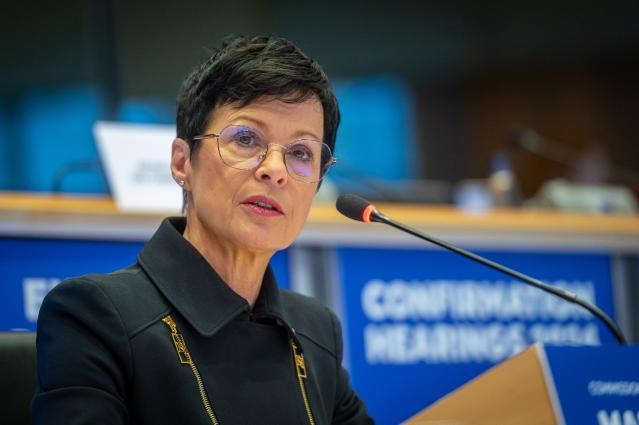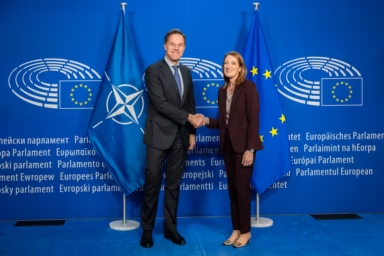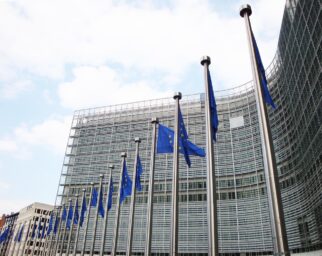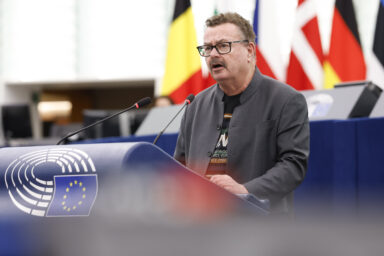Commissioner Marta Kos and rapporteur Sandro Gozi mentioned extending qualified majority voting as a prerequisite for future enlargement of the EU. Pre-enlargement reforms should take place by 2029 to avoid institutional gridlock and destabilisation of member states’ economies.
’Unanimity’ and ’qualified majority’ were among the most frequented words in the course of Parliament debate on the Institutional consequences of the EU enlargement negotiations. The event was organized under the auspicies of Committee on Constitutional Affairs (AFCO).
In her opening speech, Commissioner for Enlargement Marta Kos labelled enlargement of the EU ’strategic imperative’ and reiterated that the Commission’s position remains unchanged. She cited recent Commission President von der Leyen’ State of the Union speech in which Commission President said: “We need to move to qualified majority in some areas, for example in foreign policy. It is time to break free from the shackles of unanimity”.
Extending qualified majority voting to more areas could avoid paralysis and allow to take decisions more quickly. — Rapporteur Sandro Gozi (Renew/FRA)
Rapporteur Sandro Gozi (Renew/FRA) insisted that “so far, every enlargement in our history has been preceded by an internal reform”. He also mentioned that efficiency with reagrd to future enlargement must be top priority. “Extending qualified majority voting (in the Council) to more areas could avoid paralysis and allow to take decisions more quickly,” Ms Gozi said.
Enlargement as key to security
MEPs from mainstream factions generally struck a similar tone in their speeches. “Enlargement will not only happen, it is already happening today. It will not only strengthen the EU in the future, it is already a key contribution to our development,” said MEP Sebastião Bugalho (EPP/PRT)
Mr Bugalho also mentioned the security dimension of EU enlargement. “In terms of security, when we deepen the gradual integration of candidate countries, it is not only the candidate countries that become more secure. It is the Union as a whole that becomes less vulnerable,” he argued.
You might be interested
Less could be more: Patriots
MEPs from traditionally ’opposition’ factions such as Patriots for Europe tended to warn against speedy EU enlargement during the debate. However, even some of them cautiously spoke out in favor of limiting the right of veto.
A Union of thirty or more member states would become politically gridlocked if each member state retained its right of veto. — MEP Marieke Ehlers (PfE/NLD)
“The EU has clear political, cultural and natural boundaries. A Union of thirty or more member states would become politically gridlocked if each member state retained its right of veto (…) We must stop collecting new members as if they were stamps. Less is more,” MEP Marieke Ehlers (PfE/NLD) warned on behalf of Patriots for Europe.
Ms Ehlers also mentioned that in her opinion “the current path to EU enlargement would mean that Dutch citizens would be footing the bill and have less and less say.”
Growing towards east
At the moment there are six EU candidate countries actively negotiating, all of them in Eastern/Southeastern Europe: Albania, Moldova, Montenegro, North Macedonia, Serbia, and Ukraine. Bosnia and Herzegovina and Georgia were granted official candidate status in 2022/2023, but were asked to complete additional reforms before qualifying for the formal start of membership negotiations. Kosovo submitted an application for membership in December 2022.
Negotiations with Turkey were opened already in 2005, but have been effectively frozen by the EU since then. Currently the most advanced stage of the negotiations has so far only been reached by Montenegro. The date of accession to the EU, however, has not yet been set.











